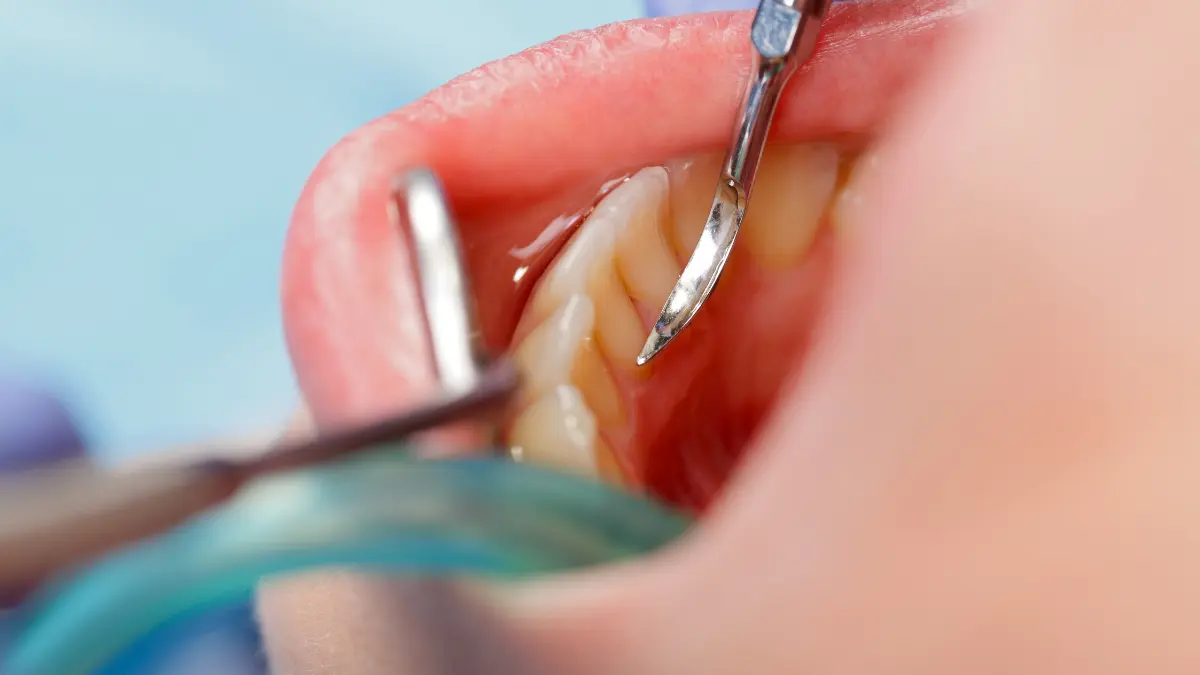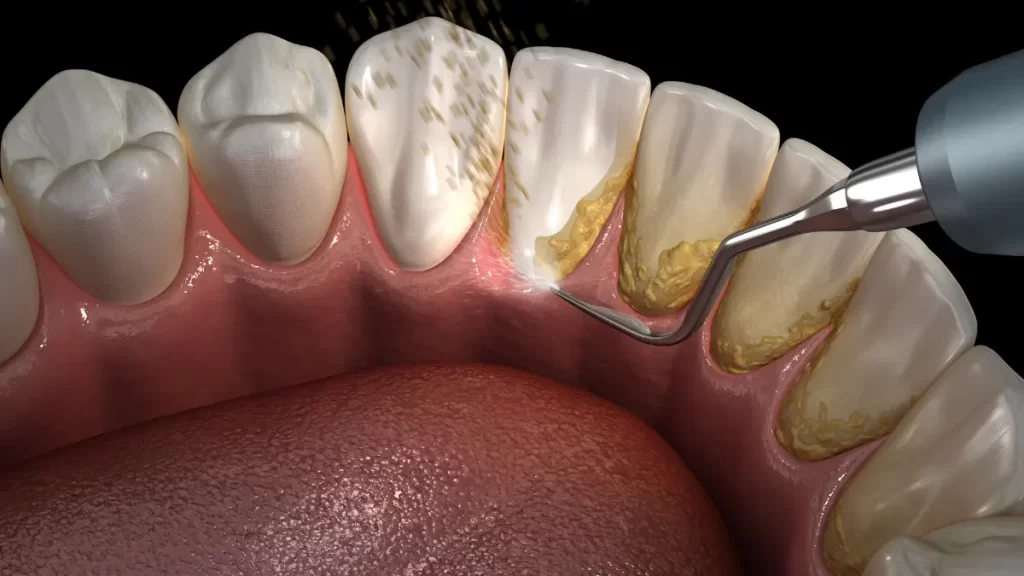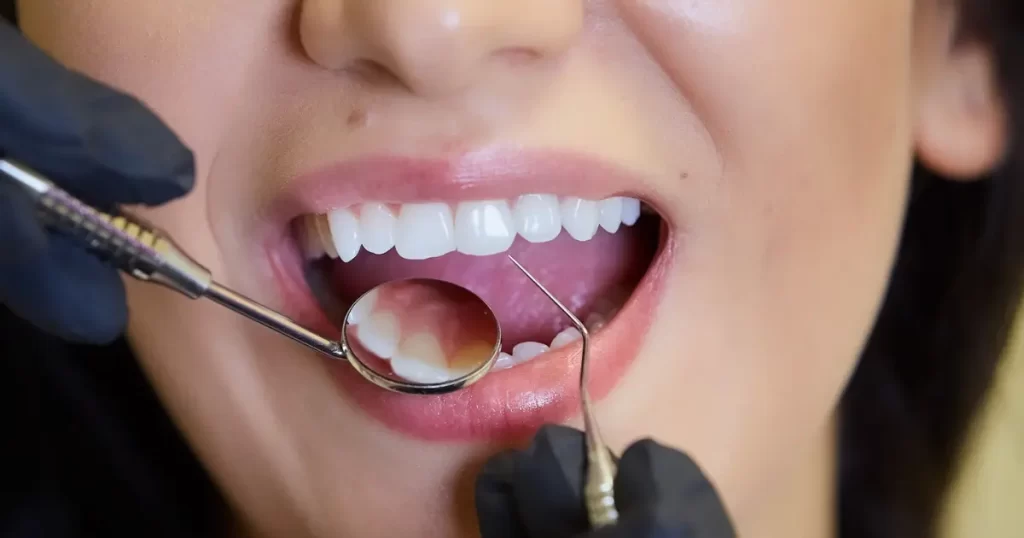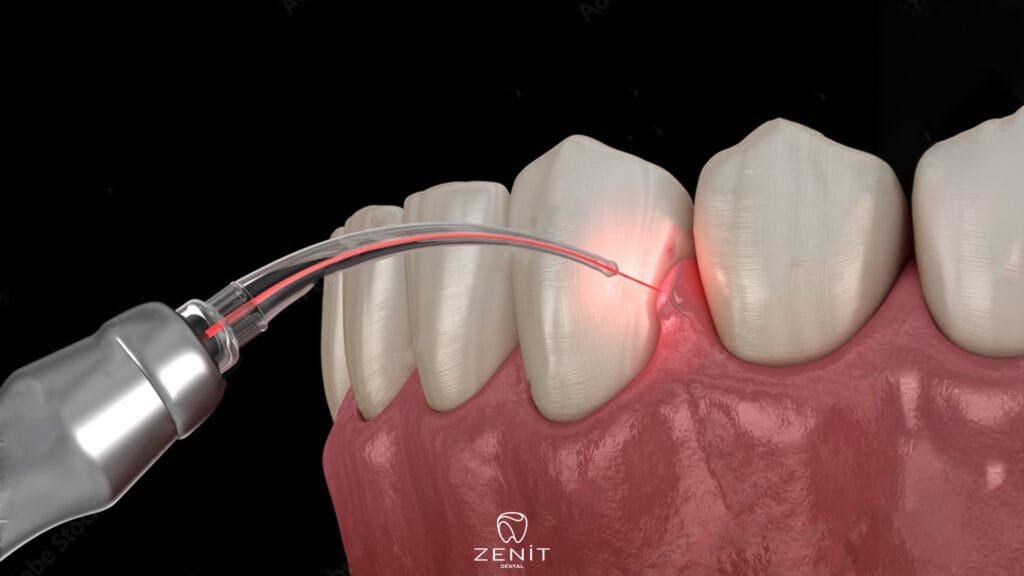You may have heard mention of the term “calculus” in the dental examination. But what exactly is calculus on teeth, and why is it a cause for concern? In this article, we will delve into the causes of calculus on teeth, its effects on oral health, and how to remove it.
Accumulating dental plaque that is a sticky film of bacteria form calculus. If plaque is not removed through regular brushing and flossing, it can harden into plaque. This is much harder to remove. And only a dental professional using specialized tools can clean calculus.
What İs Calculus On Teeth?
Calculus on the tooth, also known as tartar, is a buildup of hardened plaque that forms on the tooth and around the gum line. Plaque is a sticky film that contains bacteria. It forms on teeth due to consuming sugary and starchy foods. If not removed through brushing and flossing, plaque can harden and turn into plaque.
Calculus forms on the tooth are typically yellow or brown in color. It can make teeth appear discolored and unsightly. It can also lead to bad breath, gum disease, and tooth decay.
What Causes Calculus On Tooth?

- Poor oral hygiene: The plaque can harden into calculus when it is not removed through proper brush and flossing.
- Diet: Consuming high-in sugary and starchy foods can increase plaque on teeth.
- Smoking: Smoking can lead to the production of more plaque. It also decreases blood flow to the gums. Thus, the probability of calculus formation increases.
- Age: As we age, our saliva production decreases. It makes it more difficult for the mouth to remove plaque.
- Genetics: The genetic structure of some people is more prone to developing calculus.
How To Remove Calculus From Tooth?

After plaque has formed on teeth, it can not be removed through only a toothbrush and flossing. Professional dental cleaning is necessary to clean plaque from teeth and prevent it.
A dental hygienist or dentist will use special tools to clean the plaque. This process is known as scaling and root planning. It also uses an ultrasonic scaler, which has high-frequency vibrations to break up the plaque. Besides professional dental cleaning, there are several things you must do to prevent the consist of plaque. These include:
- Brushing twice a day with fluoride toothpaste: You brush your teeth twice a day with fluoride toothpaste. This method helps clean plaque before hardens into calculus.
- Flossing daily: This method clears plaques between the teeth and the gum line, which a toothbrush cannot reach.
- Limiting sugary and starchy foods: Consuming fewer sugary and starchy foods helps to reduce the production of plaque. So, it reduces the probability of calculus formation too.
- Quitting smoking: Quitting smoking can help reduce the consist of plaque and calculus on teeth.
- Using an antiseptic mouthwash: Antiseptic mouthwash helps to kill bacteria in the mouth and reduce the consist of plaques.
In conclusion, calculus on teeth is a common oral health issue that can have serious consequences. A buildup of hardened plaque causes calculus. It can lead to bad breath, gum disease, and tooth decay. Removing plaque from teeth requires professional dental care. But you can do several things at home to prevent its consist. You should care regularly oral hygiene and choose a healthy lifestyle. So, you can keep your teeth free of calculus and have a healthy smile.






